
This policy paper warns that the apparel industry must take urgent action to address emissions gaps to reach the climate targets of the Paris Agreement. Despite being the world’s largest buyer of clothes, the EU has not set concrete prevention targets on textile waste, hindering progress towards a fashion industry compatible with planetary boundaries. The paper recommends setting real textile waste reduction targets at the EU level, starting with an overall reduction target of at least one third by 2040 compared to 2020, and highlights the need to lead by example in addressing the negative impacts of the textile industry.
Available in English, French, and Croatian.
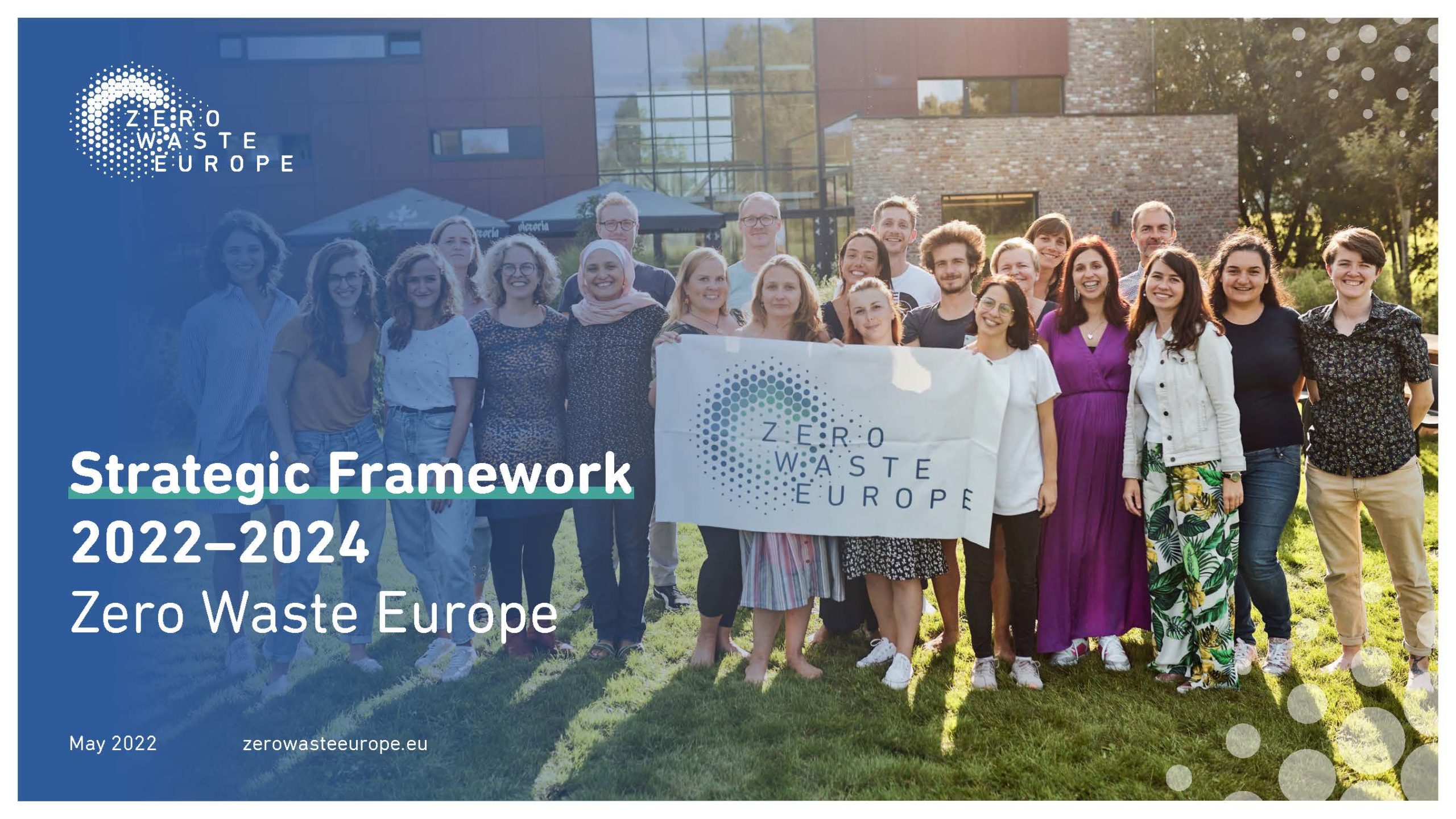
Europe is in the midst of a transition and zero waste is part of it.
Ten years ago, the concept of zero waste was laughed at. Today, zero waste is mainstream, from being considered a practical approach to implementing a circular economy to a trending lifestyle globally. The efforts from civil society groups in Europe and around the world pushed the debate higher in the waste hierarchy. If at any time over the last twenty years reuse and prevention had a chance, it is now. And ZWE is committed to bringing that change forward.
From a content perspective, for the next 3 years, we will focus on bringing IN incentives and funding for the transition, phasing OUT toxics, lifting UP reuse, pushing for BETTER recycling and bringing waste disposal DOWN.
Our Strategic Framework for 2022-24 outlines the ZWE roadmap and goals for the coming years, with the ultimate aim of helping us achieve a zero waste future for Europe (and for the world, while we’re at it).
Available in English.
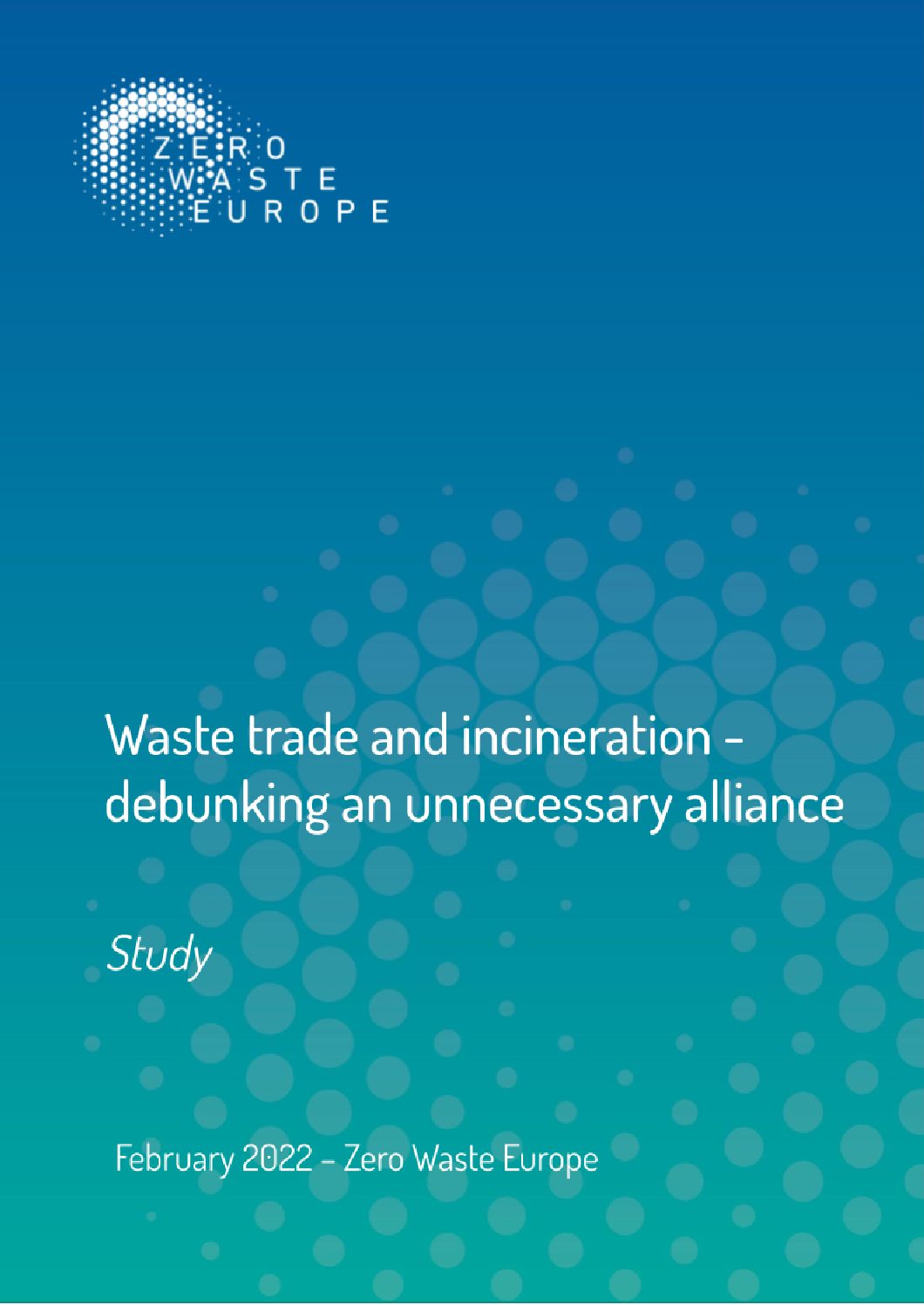
To further limit the waste shipped outside its territory, the EU is looking at adopting new waste export bans. In this case, any surplus of waste should be absorbed by intra-EU recycling, prevention, and reuse activities. However, the incineration industry claims that potential waste export restrictions should lead to an increase in the need for incineration capacity.
This study demonstrates that the need for further incineration capacity resulting from new waste export bans is neither necessary nor justified.
Available in English.
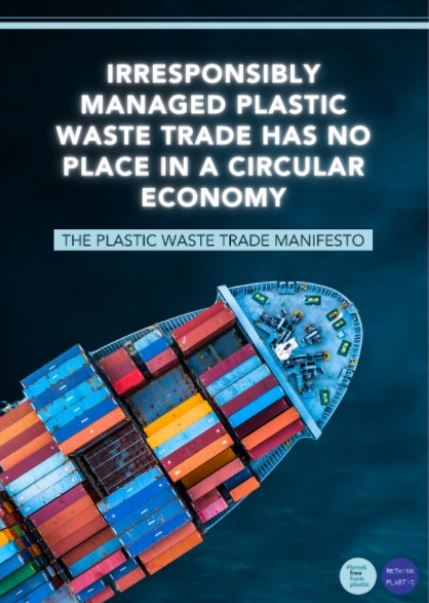
We cannot aim to achieve a truly safe circular economy with ambitious reductions in resource use, while we continue to offload the burden of our plastic waste elsewhere. This manifesto is a call to EU institutions to legislate, through the Waste Shipment Regulation, an end to plastic waste exports from the Union and intra-EU management of European plastic waste that is in line with a genuine circular economy.
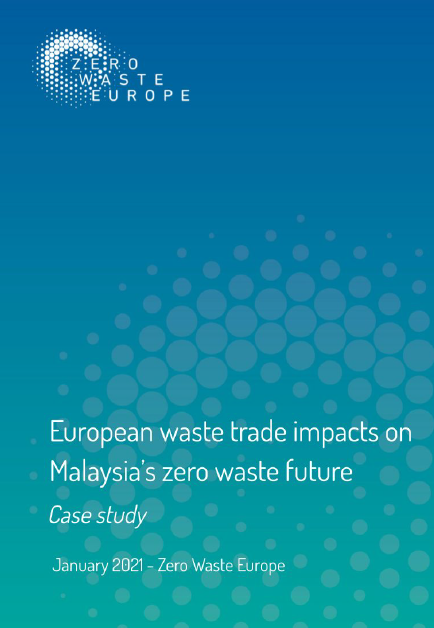
The impact of all the waste that is generated in Europe continues to be felt in countries and communities thousands of miles away. This case study illustrates the impacts inflicted by international waste trade upon Malaysia and shows how the country has responded.
Available in English
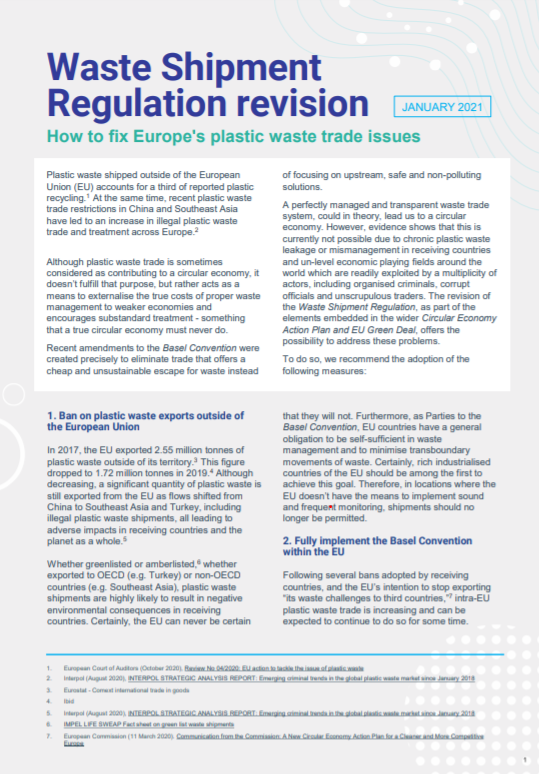
One third of reported plastic packaging recycling is actually shipped outside of the European Union! Exporting waste externalises the problem, placing the burden on other countries. The revision of the Waste Shipment Regulation offers an opportunity for change! Read our recommendations.
Available in English.
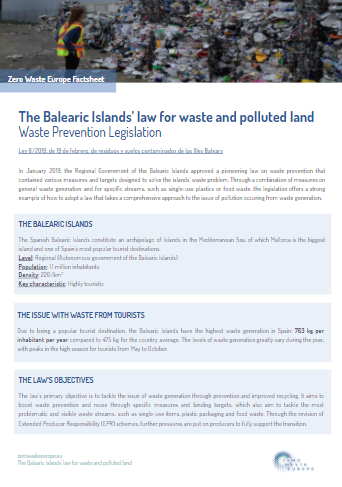
In January 2019, the Regional Government of the Balearic Islands approved a pioneering law on waste prevention that contained various measures and targets designed to solve the islands’ waste problem. Through a combination of measures on general waste generation and for specific streams, such as single-use plastics or food waste, the legislation offers a strong example of how to adopt a law that takes a comprehensive approach to the issue of pollution occuring from waste generation. Read more in our factsheet.
Available in English, Hungarian and Italian.
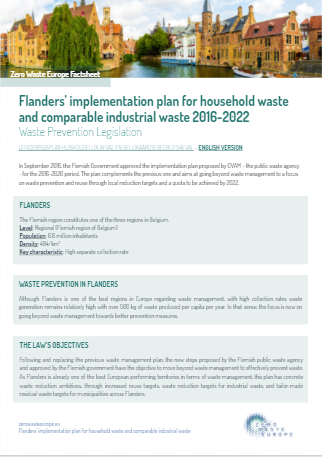
In September 2016, the Flemish Government approved the implementation plan proposed by OVAM – the public waste agency – for the 2016-2020 period. The plan complements the previous one and aims at going beyond waste management to a focus on waste prevention and reuse through local reduction targets and a quota to be achieved by 2022. Read more in our factsheet.
Available in English, Hungarian and Italian.
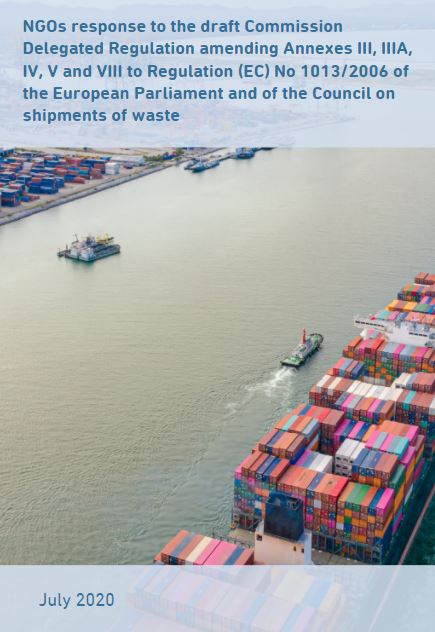
We joined forces with the other organisations of the Basel Action Network to urge the European Commission to rectify its current trajectory by adopting provisions that offer the same level of
environmental protection as the Basel Convention, for intra-EU plastic waste trade.
Available in English
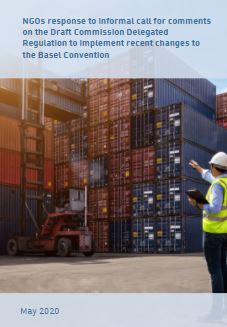
We joined forces with the other organisations of the Basel Action Network – Global Alliance for Incinerator Alternatives, Environmental Investigation Agency, European Environmental Bureau – to comment on the Delegated Regulation to transpose the Basel COP14 plastic waste amendments found in Decision 14/12 into the Waste Shipment Regulation (WSR) of the European Union.
Available in English
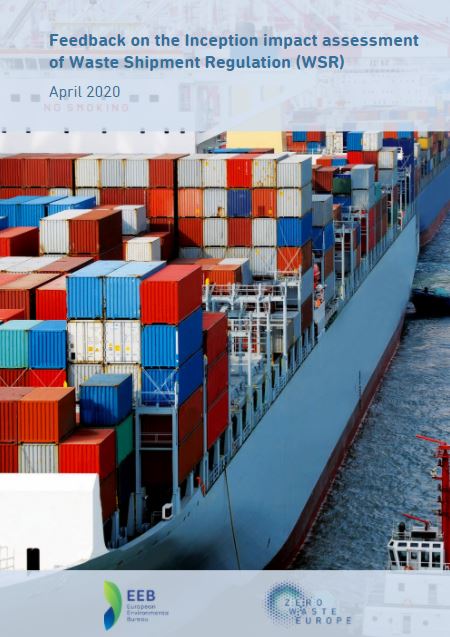
We joined forces with the European Environmental Bureau to provide our feedback on the inception impact assessment (IIA) of the WSR stressing the intention to stop exporting waste outside the EU and revisit existing rules.
Available in English
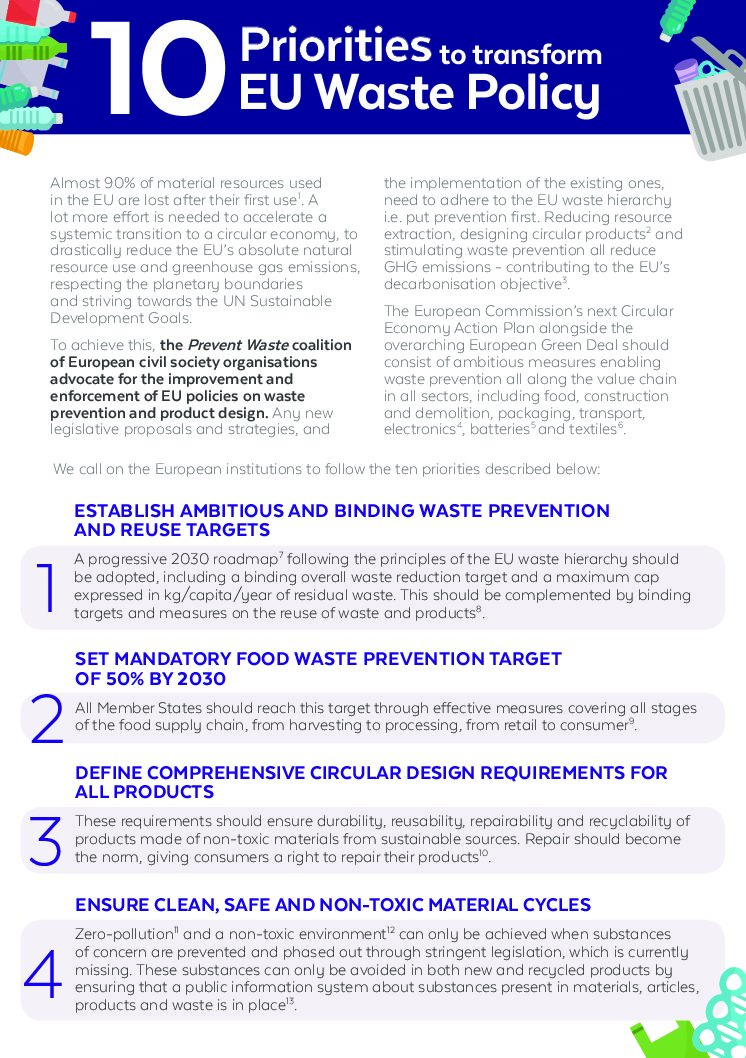
Almost 90% of material resources used in the EU are lost after their first use (1). A lot more effort is needed to accelerate a systemic transition to a circular economy, to drastically reduce the EU’s absolute natural resource use and greenhouse gas emissions, respecting the planetary boundaries and striving towards the UN Sustainable Development Goals.
To achieve this, the Prevent Waste coalition of European civil society organisations advocate for the improvement and enforcement of EU policies on waste prevention and product design.
Available in English
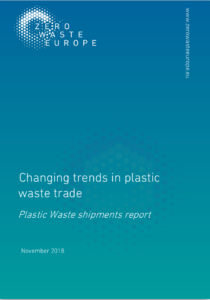
As plastic waste has grown so has the industry surrounding it. A large amount of plastic waste is exported to countries in the Global South. Our report looks at the issues arising from the global waste trade.
Available in: English












